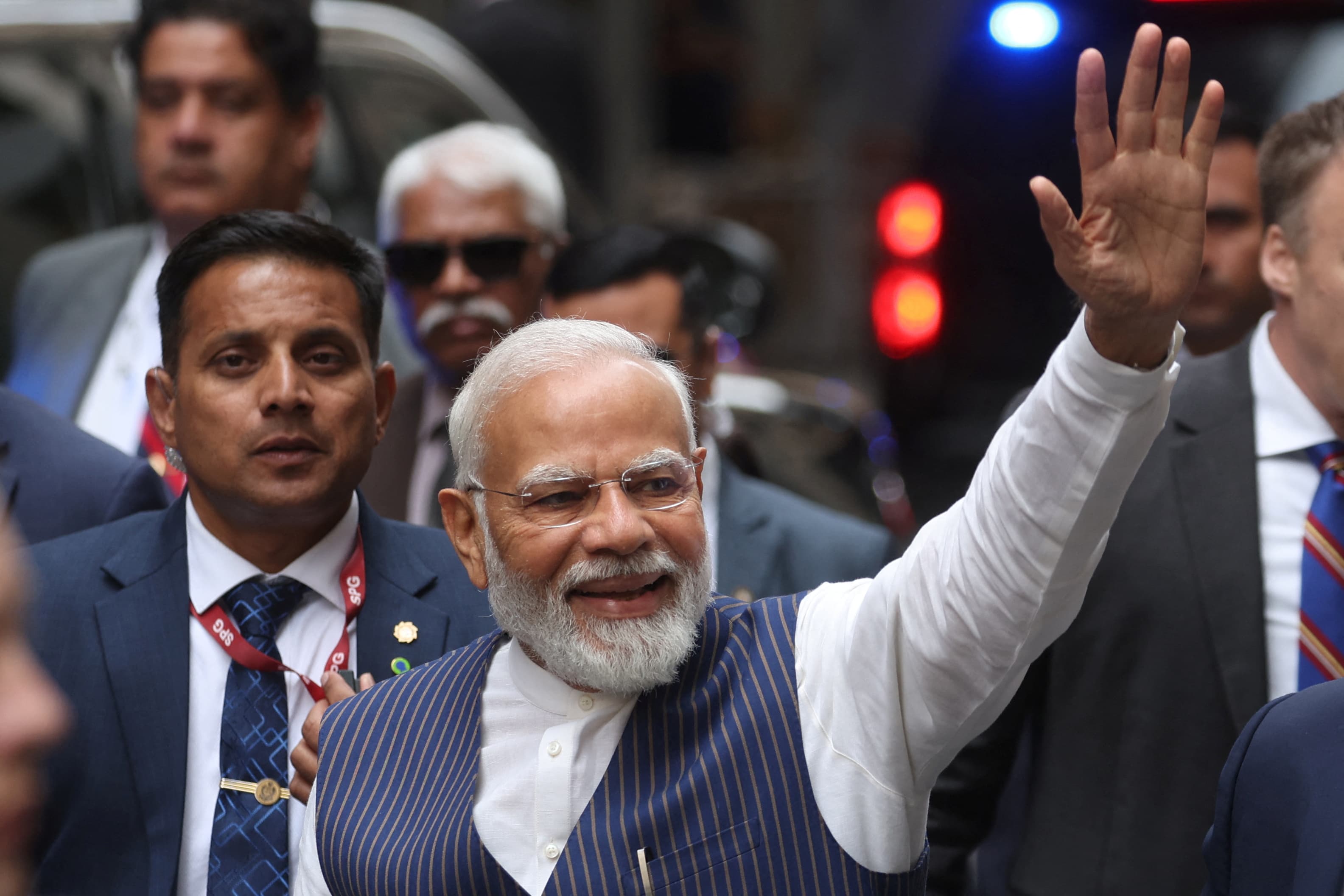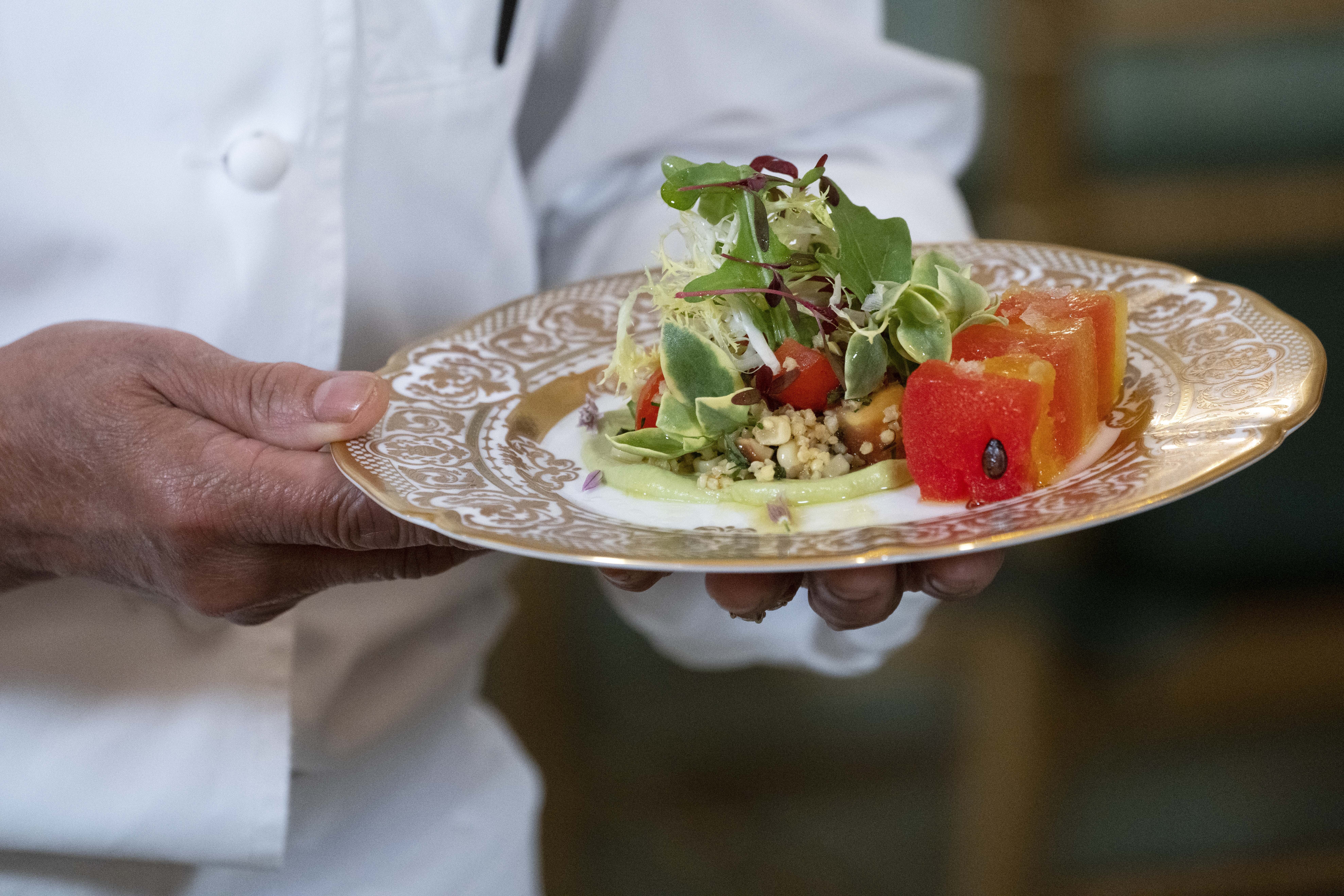
United States President Joe Biden will welcome Indian Prime Minister Narendra Modi for a state dinner at the White House Thursday evening.
Although the White House has hosted Modi multiple times, the most recent visit being September 2021, this year’s trip is special, since it’s one of the most prestigious types of diplomatic visits to the U.S.
Watch NBC6 free wherever you are
Together with the state dinner and a South Lawn welcome, Modi’s visit included an address to a joint session in Congress on Thursday afternoon – a rare honor given to few visiting foreign leaders.
Modi is the third head of state to be welcomed with such prestige during the Biden administration, after France’s Emmanuel Macron and South Korea’s Yoon Suk-yeol.
Get local news you need to know to start your day with NBC 6's News Headlines newsletter.
But what will actually happen at the state dinner, and what’s the reason for all of the pomp and circumstance surrounding it?
What is a State Dinner?
Nowadays, the term “state dinner” is used exclusively to refer to dinner hosted by the White House in honor of foreign heads of state when they visit the U.S. – and they’re huge diplomatic events.
But state dinners are a tradition going back to the early 1800s, when the term used to refer to any large dinner honoring federal governments officials or foreign dignitaries, according to the White House Historical Association.
By the late 1800s, it referred to an annual winter event held to honor Congress, the Supreme Court and diplomats. In 1874, King Kalakaua of Hawaii became the first ruling monarch to attend one such dinner, according to the WHHA.
State dinners remain a big deal to this day.
Washington Post Style reporter and columnist Roxanne Roberts has seen her fair share of state dinners.
“A state dinner is a way for a nation to acknowledge an ally,” Roberts told News4 ahead of the South Korean state dinner back in April. “It’s a way of making a very formal proclamation of friendship.”
State dinners are typically carried out in black-tie formal attire, with official speeches and toasts, elaborate food, and notable guests. About 400 guests will be in attendance.
It serves as a more festive setting than, say, Congress or an embassy for conversations about “the important business of government,” the WHHA says.
And with Modi visiting the U.S. at a time of rising tensions with China, reinforcing that friendship is a top priority for the White House.

Thursday’s event will “strengthen our two countries’ shared commitment to a free, open, prosperous, and secure Indo-Pacific and our shared resolve to elevate our strategic technology partnership, including in defense, clean energy, and space,” White House Press Secretary Karine Jean-Pierre said in a May 10 statement.
The subject of human rights is also expected to be at the center of discussion between the two leaders.
Modi’s Bharatiya Janata Party (BJP) has been accused of human rights’ infringement by rights groups, such as Amnesty International and Human Rights Watch. The organizations conducted a private screening of "India: The Modi Question," a documentary showcasing issues with Modi’s human rights record, just days before the dinner, Al-Jazeera reported.
Moreover, U.S. Representative Pramila Jayapal and U.S. Senator Chris Van Hollen led a letter with over 70 lawmakers urging President Biden to discuss human rights abuses in the country during his meetings with the Indian PM.
Food, decorations, songs: What's in store during Modi's state dinner?
From the décor and entertainment to the menu, all aspects of the glitzy state dinner were planned from a diplomatic standpoint to honor American and Indian cultures.
The dinner’s ambiance was inspired by India’s national bird, the peacock, said White House social secretary Carlos Elizondo.

“We want it to evoke that breathtaking feeling when it extends its tail, unveiling its colorful beauty, majesty, and spirit,” Elizondo said.
The entertainment was also carefully curated with the goal of combining Indian and American musical traditions.
“After dinner, we'll have the opportunity to hear one of our nation's incredible talents: Grammy award winner Joshua Bell," First Lady Jill Biden said in a statement on Wednesday. "His performance will be followed by Penn Masala, a South Asian acapella group from the University of Pennsylvania, who are bringing a little piece of my hometown to the White House, along with songs inspired by the sounds of India."
The plant-based menu appears to be the most diplomatic aspect of the event, encompassing the cultures of both countries while honoring Modi, who follows a vegetarian diet.
“We have curated a menu that really showcases the best of American cuisine seasoned with Indian elements and flavors,” stated chef Nina Curtis, a plant-based chef from Sacramento, California. The meals symbolize the union of India and the US, as guests will be able to “experience something of the other’s culture.”
Biden’s “picky-eater” reputation will be put to the test with Curtis’ unique menu, which includes marinated millet and grilled corn with compressed watermelon and tangy avocado sauce. The main course will be stuffed portobello mushrooms with a saffron-infused risotto.
However, guests will have the option to request a non-vegetarian meal, a sumac-roasted sea bass.

The United Nations declared that 2023 is the International Year of Millets. Curtis made the grain a foundational part of the menu to honor the grain’s sustainable crops and highlight a key feature of Indian cuisine.
Last but certainly not least, the dessert consists of a rose and cardamom-infused strawberry shortcake.
It remains unknown if Biden will order the fish-based option or stick to the vegetarian meal.
“We’ll see,” laughed Jill Biden when asked about her husband's dinner preferences.
According to the First Lady, the evening will have an almost fantasy-like ending.
“After the last places are cleared – with new connections forged, and old ones strengthened – guests will end their evening walks across the moonlit lawn," Jill Biden said. "There they will be greeted by hundreds of glowing lanterns guiding them home, illuminating their pathway with all the warmth and love and laughter that we hope they take away from our time together."



